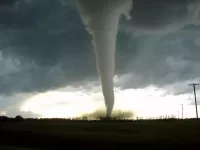Manitoba is a province located in the longitudinal centre of Canada, with a population of 1,342,153 as of 2021, making it the country's fifth-most populous province. Its landscape is diverse, ranging from arctic tundra and the Hudson Bay coastline in the north to boreal forest, large freshwater lakes, and prairie grassland in the central and southern areas.
1912: Manitoba Expands to Current Size
In 1912, Manitoba reached its current size by absorbing land from the Northwest Territories, extending its northern border to 60°N, aligning with Saskatchewan, Alberta, and British Columbia.
1914: Opening of the Panama Canal
The opening of the Panama Canal in 1914 reduced reliance on transcontinental railways, impacting Winnipeg's growth.
January 28, 1916: Women's Suffrage Legalized in Manitoba
On January 28, 1916, Manitoba legalized women's vote, becoming the first province in Canada to allow women to vote in provincial elections.
June 1919: Winnipeg General Strike
In June 1919, the Winnipeg general strike collapsed on June 25 after beginning on May 15. Government efforts to violently crush the strike led to casualties and arrests.
1922: United Farmers of Manitoba
In 1922, the United Farmers of Manitoba appeared as a political party.
1925: Le Cercle Molière Founded
Le Cercle Molière, the oldest French-language theatre in Canada, was founded in 1925.
1929: Start of the Great Depression
The Great Depression began in 1929 and had a particularly severe impact on Western Canada, including Manitoba.
1932: Founding of the Manitoba CCF
In 1932, the Manitoba Co-operative Commonwealth Federation (CCF), the forerunner to the New Democratic Party of Manitoba (NDP), was founded.
1932: Merger of United Farmers with Liberals
In 1932, the United Farmers of Manitoba merged with the Liberals.
1936: Bertram Brooker Wins Governor General's Award
In 1936, Bertram Brooker won the first-ever Governor General's Award for Fiction.
1939: End of the Great Depression
The Great Depression ended around 1939, affecting Manitoba.
1942: "If Day" Victory Loan Campaign
In 1942, the "If Day" Victory Loan campaign featured a simulated Nazi invasion of Manitoba to raise money for the war effort.
1950: Red River Flood
In 1950, Winnipeg was inundated by the Red River Flood, leading to partial evacuation and advocacy for the Red River Floodway.
1953: Royal Winnipeg Ballet Granted Royal Title
In 1953, the Winnipeg Ballet was granted its royal title under Queen Elizabeth II, becoming the Royal Winnipeg Ballet (RWB).
1958: Royal Manitoba Theatre Centre Founded
Royal Manitoba Theatre Centre, Canada's oldest English-language regional theatre, was founded in 1958.
1966: Margaret Laurence Wins Governor General's Award
Margaret Laurence's "A Jest of God" won the Governor General's Award in 1966.
1968: Completion of the Red River Floodway
In 1968, the Red River Floodway was completed after six years of excavation to protect Winnipeg from flooding.
1969: NDP Comes to Power
In 1969, the New Democratic Party of Manitoba (NDP) came to power.
1969: Manitoba Opera Founded
Manitoba Opera was founded in 1969 and performs out of the Centennial Concert Hall.
1972: Winnipeg Jets Founding
The Winnipeg Jets played in the World Hockey Association and National Hockey League from 1972.
1982: Canada Act
In 1990, Prime Minister Brian Mulroney attempted to pass the Meech Lake Accord, a series of constitutional amendments to persuade Quebec to endorse the Canada Act 1982.
1985: Supreme Court Ruling on Manitoba Language Rights
In 1985, the Supreme Court of Canada ruled in the Reference re Manitoba Language Rights that section 23 of the Manitoba Act, 1870, still applied.
1990: Failure of Meech Lake Accord
In 1990, the Meech Lake Accord failed after Cree politician Elijah Harper opposed it due to inadequate First Nations involvement.
1992: Crash Test Dummies Win Juno Award
In 1992, the folk rock band Crash Test Dummies, formed in the late 1980s in Winnipeg, won the Juno Awards Group of the Year.
1994: Lynn Johnston Pulitzer Prize Nomination
In 1994, Lynn Johnston, author of the comic strip "For Better or For Worse", was a finalist for a Pulitzer Prize and inducted into the Canadian Cartoonist Hall of Fame.
1996: Winnipeg Jets Relocation
In 1996, financial troubles prompted a sale and move of the Winnipeg Jets hockey team to Arizona, where they became the Phoenix Coyotes.
1997: "Flood of the Century"
In 1997, the "Flood of the Century" caused over C$400 million in damages in Manitoba, though the floodway prevented flooding in Winnipeg.
1998: Glen Murray Elected Mayor of Winnipeg
In 1998, Glen Murray was elected in Winnipeg, becoming the first openly gay mayor of a large North American city.
1999: Manitoba French Language Services Policy
In 1999, the Manitoba French Language Services Policy was introduced. It aimed to provide a comparable level of provincial government services in both English and French.
2001: Indigenous Population in Manitoba
As of 2001, Indigenous peoples (including Métis) represented 13.6 percent of Manitoba's population.
2001: Sandra Birdsell Giller Prize Nomination
In 2001, Sandra Birdsell was nominated for the Scotiabank Giller Prize.
2004: Indoor Smoking Ban
In 2004, Manitoba became the first province in Canada to ban indoor smoking in public places.
2004: 2 PPCLI Operates Out of CFB Shilo
Since 2004, the Second Battalion of Princess Patricia's Canadian Light Infantry (2 PPCLI) has operated out of Canadian Forces Base Shilo.
2006: 2006 Census Language Statistics
According to the 2006 Census, 82.8% of Manitoba's population spoke only English, 3.2% spoke only French, 15.1% spoke both languages, and 0.9% spoke neither language.
2006: Average Individual Income in Manitoba
The average individual income in Manitoba in 2006 was C$25,100.
2007: Tornadoes Touch Down in Manitoba
In 2007, on June 22 and 23, numerous tornadoes touched down in Manitoba, including an F5 tornado that devastated parts of Elie.
2008: Manitoba's GDP
In 2008, Manitoba's Gross Domestic Product was C$50.834 billion, with the province's economy growing 2.4 percent.
October 2009: Manitoba's Unemployment Rate
As of October 2009, Manitoba's unemployment rate was 5.8 percent.
2009: Major Flooding in Manitoba
In 2009, Manitoba experienced major flooding.
2010: Aboriginal Languages Recognition Act
In 2010, the provincial government of Manitoba passed the Aboriginal Languages Recognition Act, giving official recognition to seven indigenous languages: Cree, Dakota, Dene, Inuktitut, Michif, Ojibway, and Oji-Cree.
October 2011: New Winnipeg Airport Terminal Opens
In October 2011, a new, larger terminal opened at Winnipeg James Armstrong Richardson International Airport.
2011: Major Flooding in Manitoba
In 2011, Manitoba was impacted by major flooding.
2011: Winnipeg Jets Return
In 2011, a second incarnation of the Winnipeg Jets returned after True North Sports & Entertainment bought the Atlanta Thrashers and moved the team to Winnipeg.
2013: Accessibility Legislation Introduced
In 2013, Manitoba was the second province to introduce accessibility legislation, protecting the rights of persons with disabilities.
2016: Confirmed Tornadoes in Manitoba
In 2016, southern parts of Manitoba experienced 16 confirmed tornado touchdowns.
January 2018: Manitoba Ranked Most Improved Province
In January 2018, the Canadian Federation of Independent Business claimed Manitoba was the most improved province for tackling red tape.
2018: Pimachiowin Aki Designated UNESCO World Heritage Site
In 2018, 29,000 square kilometres of traditional First Nations lands and boreal forest on Lake Winnipeg's east side were officially designated as a UNESCO World Heritage Site known as Pimachiowin Aki.
2018: Winnipeg Airport Passenger Traffic
In 2018, Winnipeg James Armstrong Richardson International Airport served 4,484,343 passengers, making it the seventh busiest airport in Canada by passenger traffic.
2019: Joan Thomas Wins Governor General's Award
In 2019, Joan Thomas won the Governor General's Award for "Five Wives".
2020: Winnipeg Public Library Collections
As of 2020, Winnipeg Public Library had the largest collections among Manitoba's public library systems, with 1.1 million items.
2021: Religious Affiliations in Manitoba
According to the 2021 census, 54.2% of Manitobans reported being Christian, while 36.7% reported no religious affiliation.
2021: Languages Spoken in Manitoba
As of the 2021 Canadian Census, the most spoken languages in Manitoba included English (98.6%) and French (8.55%).
2021: Manitoba Census
At the 2021 census, Manitoba had a population of 1,342,153, with more than half residing in Winnipeg.
2021: Manitoba Population in 2021
In 2021, Manitoba's population was recorded as 1,342,153, making it Canada's fifth-most populous province.
2021: Port of Churchill Ownership Transfer
In 2021, the Port of Churchill and the Hudson Bay Railway came under complete community and Indigenous ownership after AGT Food and Ingredients and Fairfax Financial transferred their shares in Arctic Gateway to OneNorth.
2021: School Division Merger Plan Announced
In 2021, the provincial government announced a plan to merge all English-language school divisions into 15 regional catchment areas, overseen by a provincial education authority.
2023: Wab Kinew Elected Premier
Wab Kinew was elected premier of Manitoba in the 2023 provincial election.
Mentioned in this timeline

Elizabeth II reigned as Queen of the United Kingdom and...
Arizona is a landlocked state in the Southwestern U S...

A tornado is a rotating column of air connecting the...
Canada is a North American country the second largest in...

Atlanta is the capital and most populous city of Georgia...

War is defined as an armed conflict involving the armed...
Trending

45 minutes ago Eileen Gu Dominates Halfpipe, Secures Gold and Sixth Olympic Medal in Career.
46 minutes ago Yamamoto Shines Before Classic, Ready for Dodgers; Eyes 2026 Dominance
46 minutes ago US-Mexico Military Cooperation: Bipartisan Effort Saves Exercise, Navy SEALs Train, Cartels Targeted.

46 minutes ago Paul Mescal and Gracie Abrams Make Red Carpet Debut at the BAFTAs 2026

3 hours ago Priyanka Chopra stuns in Dior and Gaurav Gupta at 'The Bluff' premiere.
3 hours ago Puerto Vallarta: Vehicle Fires and Roadblocks Disrupt Sunday Morning
Popular

Jesse Jackson is an American civil rights activist politician and...

Barack Obama the th U S President - was the...

Bernie Sanders is a prominent American politician currently serving as...

Ken Paxton is an American politician and lawyer serving as...

Michael Joseph Jackson the King of Pop was a highly...
WWE Raw a professional wrestling television program by WWE airs...
